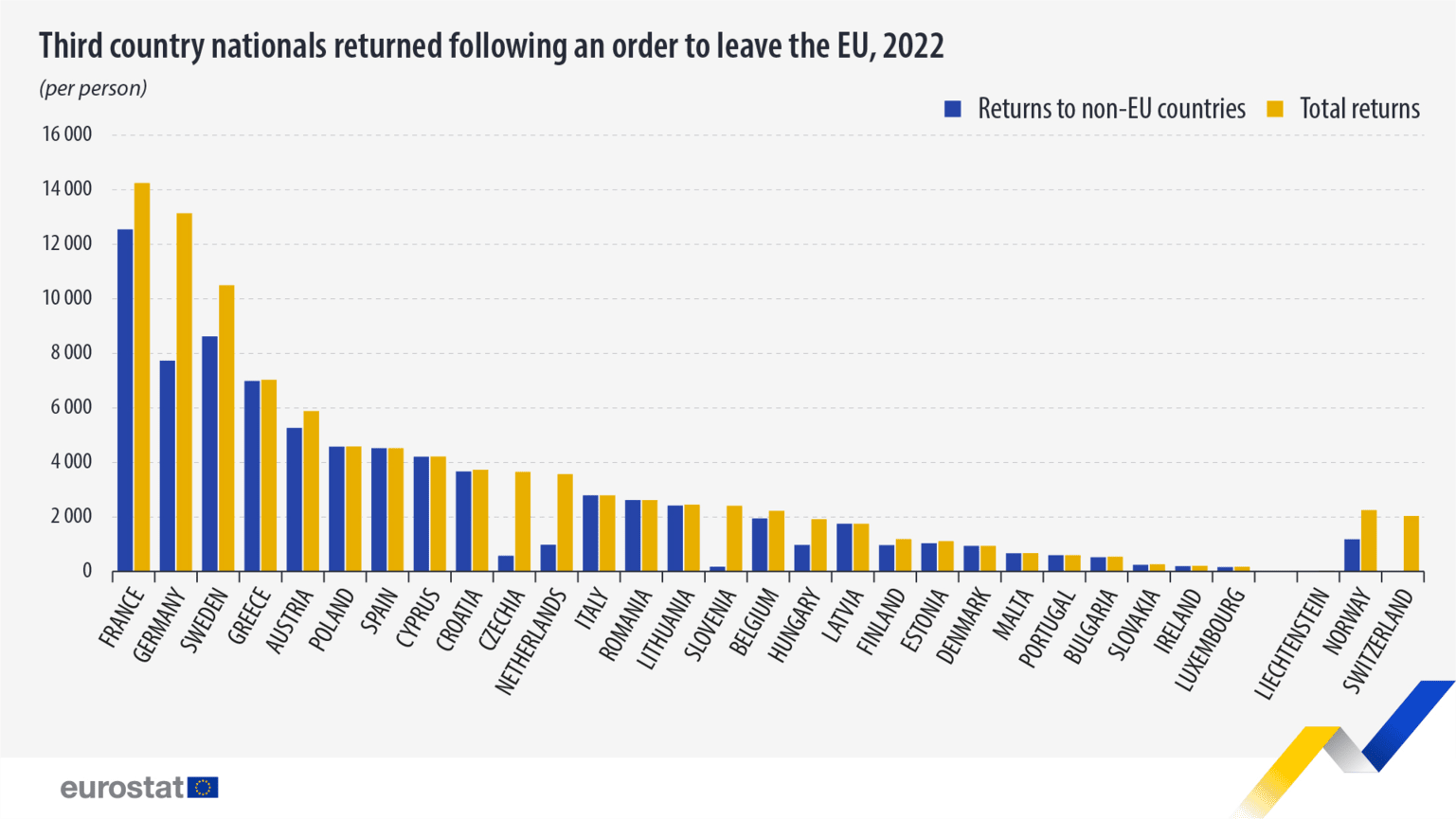In 2022, 422,400 people were ordered to leave an EU Member State, according to statistics published on 5 May by Eurostat, the EU’s statistics bureau.
Of this number, 77,530 non-EU citizens were forcibly returned to a country outside of the EU.
In total, over 1 million people were found to be undocumented within an EU Member State and a further 141,060 people were refused entry into the bloc, either at its external borders or at airports in Member States.
"The largest number of refusals of entry were reported by Poland (23,330), followed by Hungary (15,780), Croatia (11,800), and Ireland (9,240)," statisticians remarked.
Eurostat says that Ukrainians accounted for the largest number of entry refusals in the EU (28,890), primarily a result of overstaying their visa-free status. The net largest numbers were recorded for citizens of Albania (15,630) and Russia (10,860).

Credit: Eurostat
Among EU countries, France reported the largest number of non-EU citizens ordered to leave its territory (135 650), followed by Croatia (40,525) and Greece (33,500).
France also reported the largest number of non-EU citizens returned to another EU Member State (14 240), followed by Germany (13,130) and Sweden (10,490).
Hungary, who has staunchly anti-immigration government, reported the largest number of non-EU citizens living undocumented within its country (222,520), followed by Germany (198,310) and Italy (138,420).
Precarious Belgium
According to EU statistics, 10,965 people were found to be undocumented in Belgium last year, with 20,245 people (including those already established in the country) asked by Belgian authorities to leave the country. In total, 2,205 people were deported.
Belgium has struggled to process, shelter or deport migrants from its territory for a long time. Despite 6,000 convictions for wrongful conduct, the Belgian government has repeatedly failed to fulfil its duty and provide shelter to asylum seekers.
Related News
- Meloni 'incapable' of managing migration, says French Minister
- Almost 1,000 undocumented migrants sent back in first quarter
In March, ministers agreed upon a new migration deal to help ease the pressure on Fedasil, Belgium’s migrant reception service. The new deal is set to "give Belgium more control over migration" and create more reception spaces for new arrivals.

